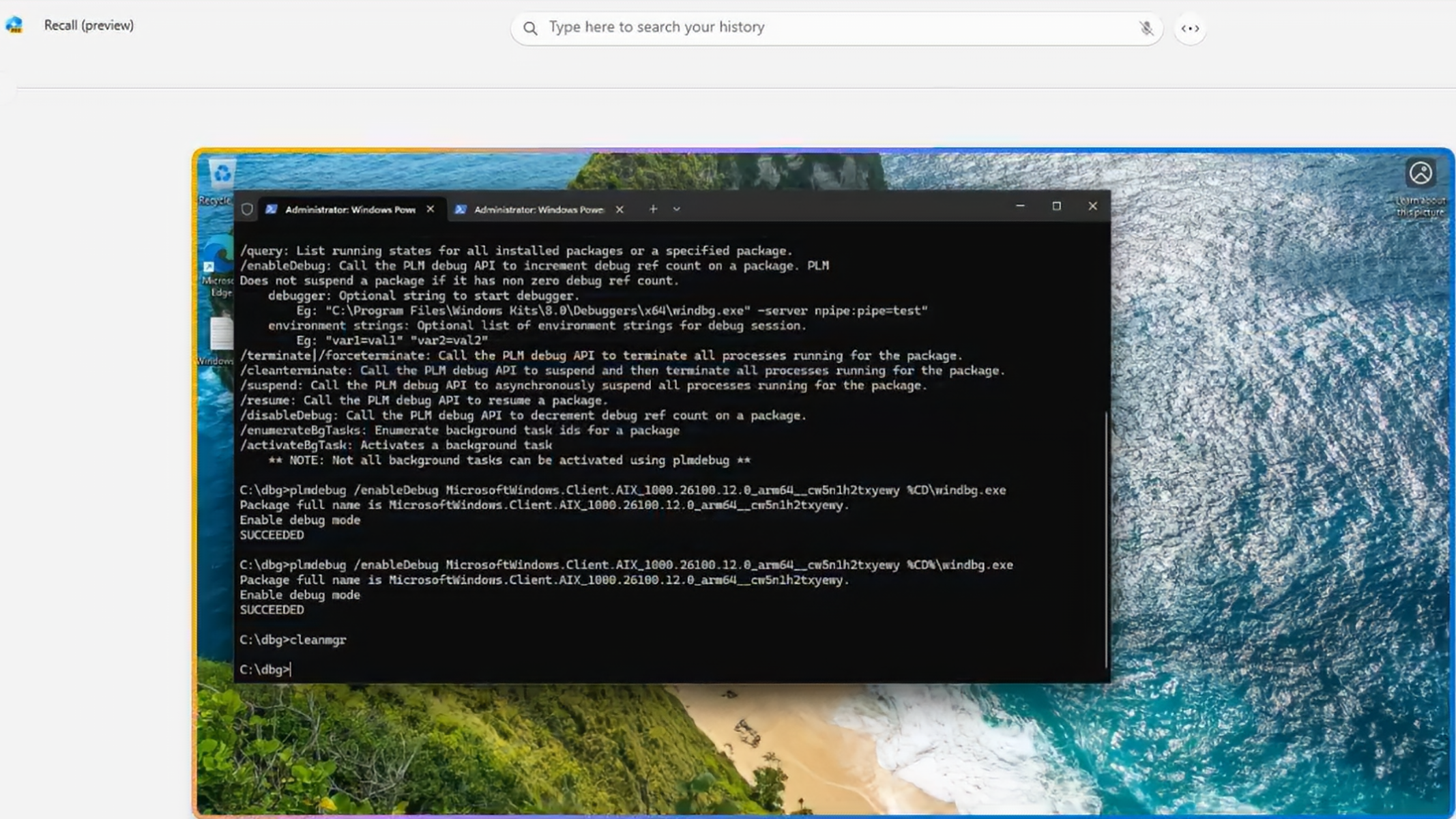
Amidst the controversy around Windows 11's new (mostly-unwanted) Copilot+ features, a developer on Twitter has taken the discussion a step further by revealing that one of the flagship new features, Recall, doesn't require the presence of a powerful NPU after all. This makes sense, though, considering Recall's main functions seem to be automated screen captures and the ability to search through those screen caps' text — two things that modern hardware has been capable of for a while, now.
Making great progress enabling Recall on current Arm64 hardware, no fancy X Elite in sight! ✨Should theoretically work on Intel/AMD too, OEMs only received Arm64 specific ML model bundles so there's not much I can do yet.Here's a small demo video showing off screenray 🪄 pic.twitter.com/w57fF1LxiNMay 23, 2024
The big question is, will these workloads run as fast without an NPU? According to @thebookisclosed, the slow performance seen in the video above can be partially attributed to the screen recording taking place, so it should be faster without it.
In any case, we're sure that the feature can properly leverage a powerful NPU. However, considering the existing presence of AI cores in the majority of modern consumer GPUs from AMD and Nvidia and that this can clearly be run without them, one wonders why Microsoft is restricting these features so heavily. At least Automatic Super Resolution's restrictions make some degree of sense, but even then earlier versions of AMD FSR and Intel XeSS don't use AI upscaling hardware either, so it should be an optional requirement.
We suppose there would be less to market with Windows 11 and the "AI PC" and its "technical advancements" if the software didn't have artificial limitations built into it. This wouldn't be the first time — for example, the Windows 11 implementation of Auto HDR was first tested in Windows 10 preview builds before being removed from the older OS, likely for the same reasons. I'm still mad about that one.
In any case, it was impressive work from @thebookisclosed to pull this off, so we have to tip the hat. While this testing was done with "current-gen Arm64 hardware", they claim that it should also work on x86-64 CPUs from Intel and AMD, which would certainly make sense considering how truly unimpressive most of these "AI PC" features actually are.
And of course, none of that is even broaching the many ethical and environmental concerns that come with such excessive saturation of AI technology, especially generative AI.







